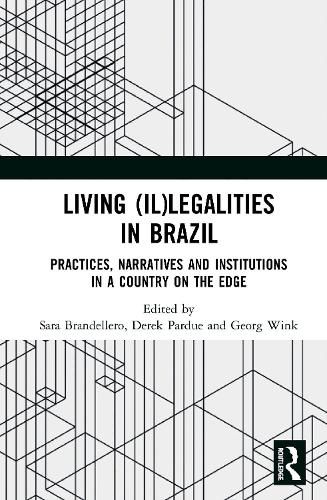Readings Newsletter
Become a Readings Member to make your shopping experience even easier.
Sign in or sign up for free!
You’re not far away from qualifying for FREE standard shipping within Australia
You’ve qualified for FREE standard shipping within Australia
The cart is loading…






Reflecting on some of Brazil’s foremost challenges, this book considers the porous relationship between legality and illegality in a country that presages political and societal changes in hitherto unprecedented dimensions.
It brings together work by established scholars from Brazil, Europe and the United States to think through how (il)legalities are produced and represented at the level of institutions, (daily) practice and culture. Through
a transdisciplinary approach, the chapters cover issues including informal work practices (e.g. street vendors), urban squatter movements and migration. Alongside social practices, the volume features close analyses of cultural practices and cultural production, including migrant literature, punk music and indigenous art.
The question of (il)legalities resonates beyond Brazil’s borders, as concepts such as lawfare have crept into vocabularies, and countries the world over grapple with issues like state interference, fake news and the definition of illegal migration. This is valuable reading for scholars in Brazilian and Latin American Studies, as well as those working in literary and cultural studies, anthropology, sociology, geography and political science.
$9.00 standard shipping within Australia
FREE standard shipping within Australia for orders over $100.00
Express & International shipping calculated at checkout
Reflecting on some of Brazil’s foremost challenges, this book considers the porous relationship between legality and illegality in a country that presages political and societal changes in hitherto unprecedented dimensions.
It brings together work by established scholars from Brazil, Europe and the United States to think through how (il)legalities are produced and represented at the level of institutions, (daily) practice and culture. Through
a transdisciplinary approach, the chapters cover issues including informal work practices (e.g. street vendors), urban squatter movements and migration. Alongside social practices, the volume features close analyses of cultural practices and cultural production, including migrant literature, punk music and indigenous art.
The question of (il)legalities resonates beyond Brazil’s borders, as concepts such as lawfare have crept into vocabularies, and countries the world over grapple with issues like state interference, fake news and the definition of illegal migration. This is valuable reading for scholars in Brazilian and Latin American Studies, as well as those working in literary and cultural studies, anthropology, sociology, geography and political science.